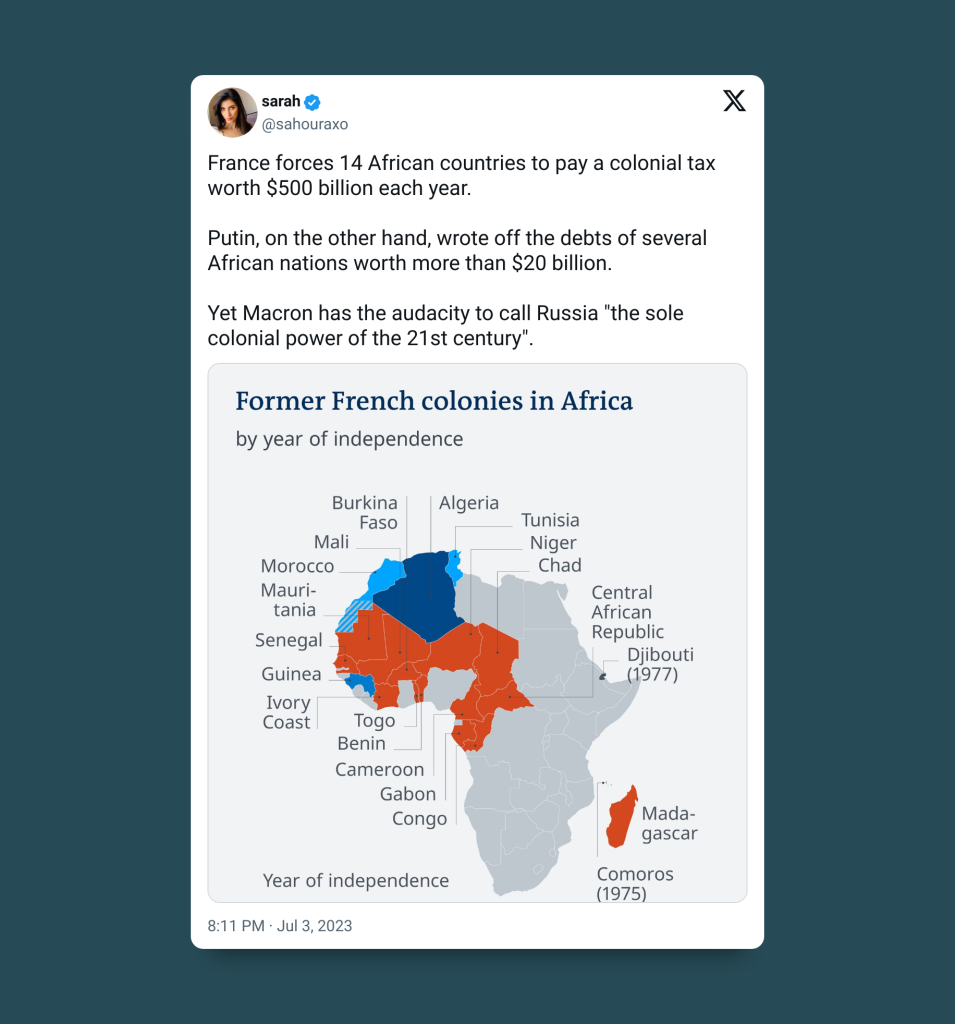While it may be too early to measure if Nigeria’s decision to partner with BRICS is a step in the right direction or a misstep, what should worry us is the lack of consistency on the part of the Tinubu-led government regarding foreign policy.
Before the 17th day of January when Nigeria was announced by the government of Brazil (in its capacity as the incumbent President of BRICS) as one of the partners of BRICS, many of us had thought that the Tinubu-led government of Nigeria was pro-West or at least anti-Russia. We reached this conclusion based on some notable roles President Tinubu played in the international arena since his tenure began in May 2023.
Tinubu’s first major outing in international politics came within the first three months of his administration when he threatened to invade Niger with soldiers to force out the junta government of Brig. Gen. Abdourahamane Tchiani. Though he made this threat in his capacity as the chairperson of the Economic Community of West Africa States (ECOWAS), the fact that the threat was made against a vocally anti-West military government portrayed Tinubu as playing the henchman for the West. It didn’t help that his opposition to the revolutionary military government in Niger came at a time when many states in Africa (particularly Francophone states) were rising against former colonial masters like France. This explains why other anti-West military juntas in Burkina Faso and Mali took sides with Brig. Gen. Abdourahamane Tchiani of Niger and jointly staged an opposition to Tinubu’s pro-West posturing by withdrawing their states from ECOWAS.
As if not bothered by the growing suspicion that he has been playing a stooge for the West, President Tinubu, last November, added salt to the wound when he led a delegation of Nigerian politicians and businessmen to a three-day visit to President Macron of France.
Electing to dine with France – a country that is increasingly being perceived as one of the major perpetrators of neocolonialism in Africa – concretised the suspicion that President Tinubu was moving in the opposite direction to the anti-West liberation movements happening in many parts of Africa today, particularly in Francophone Africa.

Following this suspicious visit, Niger’s military head of state, Brig. Gen. Abdourahamane Tchiani, came out to accuse President Tinubu of conspiring with France to set up or accommodate a terrorist group within Nigeria to destabilise Niger. Though this claim was roundly refuted by Nigeria’s National Security Adviser, Nuhu Ribadu, in an interview with the BBC, the general feeling remained that Tinubu’s international politics leaned in favour of the West than any other bloc.
It was, therefore, surprising to wake up to the news that Nigeria has joined BRICS as a partner. Like, what changed? What happened to the Nigeria-France bromance? Could it be that President Tinubu and his government did not get the kind of reward/support they were hoping to get from France? Or did Russia/BRICS offer Nigeria a better deal?
ALSO READ: A Tale of Two Presidents: Senegal’s Faye vs. Nigeria’s Tinubu in Their Early Days in Office
While it will be difficult to find clear answers to the above questions (at least for now), we can, at least, examine the likely political and economic consequences of Nigeria’s decision to affiliate with BRICS.
The name ‘BRICS’ is an acronym couched from the first letters of the names of five states – Brazil, Russia, India, China, and South Africa. These states along with others like Egypt, Ethiopia, Indonesia, Iran and the United Arab Emirates formed BRICS as an intergovernmental political and economic bloc with the major aim of bolstering or defending their economic and political interests through business and military cooperation. Recently, the bloc decided to expand its economic and political influence by recruiting countries like Nigeria, Belarus, Bolivia, Cuba, Kazakhstan, Uganda, Uzbekistan, Thailand and Malaysia as its partners.
Being a group that is associated with Russia – a country that is one major threat to Western hegemony – one of the consequences of Nigeria’s partnership with the bloc is that it could affect Nigeria’s traditional partnership with the West, particularly the UK which has bilateral agreements with Nigeria.
Another likely implication of the partnership could be Nigeria’s loss of business/diplomatic relationship with the US, particularly if BRICS persist in its plan to introduce a ‘New Digital Currency’ (a uniform trading currency) which the US perceives as an attack on its economy as it would rival the US Dollar as a universal convertible currency. Going by the threat issued by Donald Trump in his strong-worded opposition to BRICS’ New Digital Currency, Nigeria might face sanctions from the US government (like complete loss of trade ties or the imposition of stiff tariffs) for participating in the formation of any uniform currency with BRICS.
Equally likely to happen to Nigeria due to her decision to partner with BRICS is the loss of aid or monetary support from the World Bank and International Monetary Fund (IMF). This is because there are speculations that BRICS intends to establish similar monetary institutions – New Development Bank (NBD) and Contingent Reserve Arrangement (CRA) – which would most likely compete with the World Bank and International Monetary Fund.
On the flip/positive side, partnering with BRICS will open new markets for Nigeria (which will boost trade and investments), enhance transfer of technology between Nigeria and members of BRICS as well as enable Nigeria to escape from the problem of over-dependency on the US dollar (should BRICS succeed in introducing a uniform currency for its members and partners).
Specifically for Tinubu and his team, they will be hoping to leverage on the partnership to lobby for funding from BRICS through its New Development Bank (NBD) and Contingent Reserve Arrangement (CRA).


